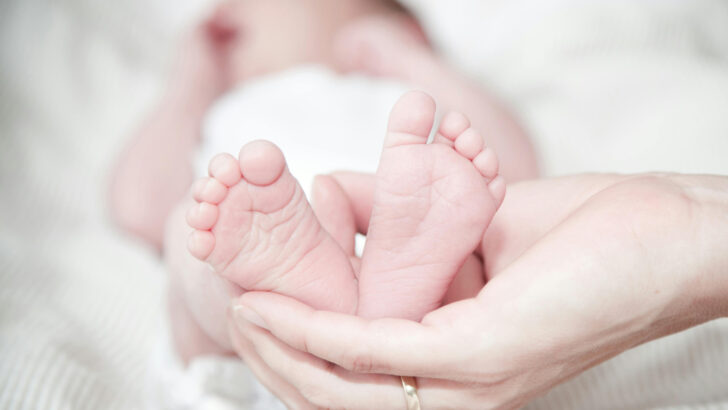In modern culture, it is still fashionable for reporters to be dispatched to hospitals to find the first-born of 2025. Children, whether the media admits it or not, remain the world’s most valuable resource. “The best hope for the future,” was how former Irish American President, John F. Kennedy, put it.
And so, north of the border, it was widely reported that the first to arrive was a child called Ezra, whose biblical name means help or helper. In the Old Testament, Ezra was revered for enabling a second wave of Judeans to escape Babylonian exile.
Little Ezra Ashton – who was in fact pipped in Dublin by baby Bradley – is now among a generation fashionably dubbed Generation Beta, not a terribly inspiring title. Who wants to be named after the second letter of the Greek alphabet?
The term comes from an Australian social researcher and “futurist” Mark McCrindle, who is famous for naming and chronicling Generation Alpha.
Apparently when Generation Beta, those born between 2025 and 2039, comes to vote, it is Generation X, those born between 1965 and 1980, who will be in power (I thought we already were!).
Challenges
Along with the mysteries of life and the universe, Generation Beta will have to contend with the challenges of AI, artificial intelligence, falling birth rates, and climate change (if it is still called that in 2039!).
“What will this child be?” is a question we all ask, and one that appears in Luke’s Gospel, in relation to John the Baptist, whose baptism of the Lord in the River Jordan we celebrate this Sunday.
As Catholics we must also ask: will Generation Beta, either as infants or adults, be baptised and become Generation Alpha Omega, with a share in Christ’s divinity, as priest, prophet and king? And of those who do, how many will practice the Catholic faith and attend Mass?
We already know that with the declining birth rate, there has been a decline in baptism. We also know there is still a desire for baptism, even among parents who do not practice their faith.
In 2022, it was also reported that in Dublin there was a 10% drop in baptisms, possibly linked to a change in the rules linking baptism to a place in a Catholic school”
Ten years ago, The Irish Times commissioned a poll on ‘Family Values’, which indicated that 93% of parents still had their child baptised – even though a much smaller percentage prayed or went to Mass regularly. In 2022, it was also reported that in Dublin there was a 10% drop in baptisms, possibly linked to a change in the rules linking baptism to a place in a Catholic school.
When I was born into a Catholic family, there was no question that I would be baptised. My parents understood the importance of baptism, as the gateway to immortality, the gateway to all the sacraments and to discipleship, when we become, with Christ, heirs to a Kingdom. At baptism, we each receive our mission, our unique vocation in the life of the Church, as lay Catholics, priests or religious.
Grace
It is a grace that there is still a demand for baptism, even among those who do not participate fully in the life of the Church.
How can this be? How is it that children are presented for baptism and don’t appear at the altar again for years, if at all? Is it because we as a Church have failed to explain and understand this awesome gift?
One wonders if there would be so many debates and arguments in the Church about the role of the laity, and who does what in the Church, if we men and women truly understood the nature of our own baptism, our own unique call?
”What about him?” Peter asked the Lord in the last chapter of John’s Gospel in reference to the youngest apostle, John. Peter wanted to know about John’s journey in faith, but the Lord made it clear it was none of his business. “…what is that to you? You must follow me”.
How can a child who has done nothing wrong be in need of such a cleansing? It is best explained as a means of addressing the dysfunction that we have all been born into”
As part of my parish work, I often meet parents who come for baptism and what I notice is that they all deeply desire the best for their child – and are open to learning about this deep mystery.
When he came to Dublin seven years ago, Pope Francis made an impassioned appeal to parents in Croke Park about the importance of having babies baptised. “Forte!” was the word he used in urging mothers and fathers to baptise their babies, because, he said, it would make them strong.
To “modern minds” it can seem an old-fashioned idea to have a child baptised to remove mortal sin. How can a child who has done nothing wrong be in need of such a cleansing? It is best explained as a means of addressing the dysfunction that we have all been born into. Bishop Robert Barron, in his excellent series, The Sacraments, uses the metaphor of the child who is born addicted to crack cocaine. It is not the child’s fault, but the problem still has to be healed.
Mortality
Of course the biggest problem each of us must face is our own mortality and Generation Beta will not find life without limit in Artificial Intelligence, as some seem to think.
This time last year, the 80s pop star Howard Jones revealed he was working with a company to create an AI version of his voice, so he can achieve a kind of immortality.
Admittedly, there are parents who seek baptism because of tradition or to keep the peace. These may not be the best circumstances to baptise a child but they do bear fruit nevertheless. “I was only baptised to keep my Italian grandmother happy,” said a Catholic of my generation, whose parents had no interest in the faith. He was raised in a secular household, but as a young man was led to an amazing encounter with Jesus Christ. He has been a priest in Ireland for many years now.
His story gives me hope, not just for Generation X, but for Generation Beta and all those to come.
Make the best use of our time in evil days
I logged on to a website the other day and was immediately reminded of St Paul’s letter to the Ephesians, where he urges us to make the best use of our time in these evil days. A message had popped up in an advertisement. “2025 will have 525,600 minutes in it…” I wasn’t sold on their product, but I did take the message to heart.
Next best thing to St Peter
A Belfast man arrived at the entrance of his parish church the other day, and had to wait behind the wheel while the parish priest unlocked the gates to the carpark. The driver soon stuck his head out the window: “Are you St Peter?” he cheerfully inquired. “Oh no,” came the swift and smiling reply, “…I’m the next best thing!”


 Martina Purdy
Martina Purdy
